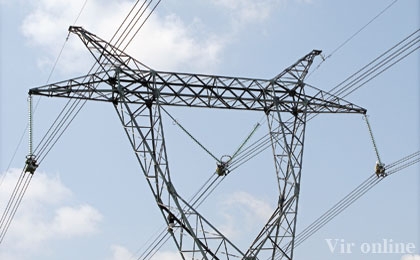Power woes still shocking the deputies
Many deputies last week failed to be convinced by the Ministry of Industry and Trade’s (MoIT) responses to their questions over frequent power cuts in Vietnam.
 |
| The nation’s electricity shortcomings are well documented |
“Who is mainly responsible for Vietnam’s year-to-year power shortages? Relevant governmental agencies, the leadership of the MoIT and Electricity of Vietnam (EVN) promise again and again merely justify their actions,” said Thanh Hoa province’s NA deputy Le Van Cuong.
MoIT Minister Vu Huy Hoang said the frequent power cuts were due to national power generation planning problems.
“The situation is also attributed to capital shortages, particularly in 2008 and 2009 when the country was hit hard by the economic downturn. The shortages have stopped many power plants from being put into operation in 2010 and the following years,” Hoang said.
However, Thai Nguyen province’s NA deputy Le Thi Nga argued that while the EVN, which had a monopoly in distributing 60 per cent of Vietnam’s power output, lamented that it suffered from capital shortages and losses and before asking for power tariff hikes, it spent over VND1 trillion ($50 million) as bonuses for its employees in 2008 and spent another VND2 trillion (more than $100 million) ineffectively investing into finance, securities and other sectors.
“We recommend that the NA and the government inspect and audit the EVN as soon as possible,” Nga said.
In May this year, Hoang told the NA that frequent power cuts were due to “objective reasons” such as prolonged drought and scorching hot weather, which lowered water levels at reservoirs. However, his ideas were rejected by NA deputies.
Southern Binh Duong province deputy Huynh Ngoc Dang said the power shortages would stunt the country’s efforts to become an industrialised country by 2020.
“There have been too many justifications about the causes of the situation. But the constituents want you [power authorities] to stop arguments to take urgent action.
I see that the government’s report about Vietnam’s socio-economic development in 2010 and 2011 does not mention power problems,” Dang said.
“I recommend the EVN be allowed to directly report the power situation to the NA,” he said.
Frequent power cuts throughout the country have seriously affected people’s lives and enterprises.
Nguyen Hong Van, vice general director of Thai-backed CP Group, which currently has nearly 20 livestock feed processing factories in Vietnam, said: “Difficulties in weak infrastructure and complicated administrative procedures are common for foreign firms doing business like our group in Vietnam. Our biggest obsession is frequent power cuts. In many cases, power cuts happened without any notice.”
“We cannot calculate how much we have lost from frequent power cuts in the country. If only Vietnam could improve this situation,” Van said.
Tuyen Quang province deputy Nguyen Van Son said EVN’s monopoly was stopping Vietnam from having a competitive power market.
“The public and enterprises cannot wait any longer. The government needs to take clear-cut urgent action, so that such a market will appear before 2015,” Son said.
Over the past five years, Vietnam’s annual average electricity consumption had grown by over 15-16 per cent, while electricity production had risen by 13 per cent.
NA deputies argued that over the next five to 10 years, the situation would not be solved by increasing the country’s power plants, because it often took four years to build a power plant and connect it to the national grid.
Hoang said that the best solutions to power shortages included boosting the construction of power plants.
“The government has asked the MoIT to put some newly built power plant into stable operation,” Hoang said.
He said the MoIT had combined with relevant ministries and agencies to make a plan to reshuffle the power sector including the EVN. This plan would be submitted to the government at the end of this year.
What the stars mean:
★ Poor ★ ★ Promising ★★★ Good ★★★★ Very good ★★★★★ Exceptional
Related Contents
Latest News
More News
- Japanese business outlook in Vietnam turns more optimistic (January 28, 2026 | 09:54)
- Foreign leaders extend congratulations to Party General Secretary To Lam (January 25, 2026 | 10:01)
- 14th National Party Congress wraps up with success (January 25, 2026 | 09:49)
- Congratulations from VFF Central Committee's int’l partners to 14th National Party Congress (January 25, 2026 | 09:46)
- 14th Party Central Committee unanimously elects To Lam as General Secretary (January 23, 2026 | 16:22)
- Worldwide congratulations underscore confidence in Vietnam’s 14th Party Congress (January 23, 2026 | 09:02)
- Political parties, organisations, int’l friends send congratulations to 14th National Party Congress (January 22, 2026 | 09:33)
- Press release on second working day of 14th National Party Congress (January 22, 2026 | 09:19)
- 14th National Party Congress: Japanese media highlight Vietnam’s growth targets (January 21, 2026 | 09:46)
- 14th National Party Congress: Driving force for Vietnam to continue renewal, innovation, breakthroughs (January 21, 2026 | 09:42)

 Tag:
Tag:


















 Mobile Version
Mobile Version